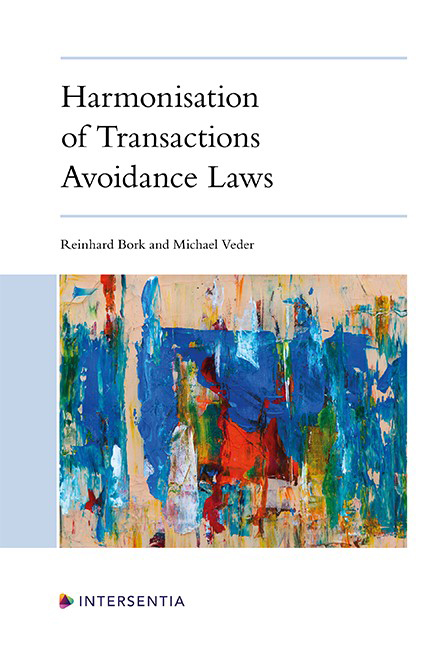Chapter 1 - The Project
Published online by Cambridge University Press: 26 May 2022
Summary
SETTING THE SCENE
This study deals with transactions avoidance law which, in principle, is an essential part of insolvency law. Rules on transactions avoidance are aimed at the rescission of, or the compensation for, transactions that are detrimental to creditors and have been performed prior to the opening of insolvency proceedings. The effect of the opening of insolvency proceedings is typically the shiftof the power of disposal from the debtor to the Insolvency Practitioner. Hence, transactions made by the debtor after the opening of the proceedings are in most jurisdictions not valid, since the debtor no longer has the power to administer and dispose of his or her assets. As from the opening of insolvency proceedings, disposal by the debtor and individual enforcement acts by creditors are prohibited and invalidated by substantive insolvency law. As opposed to this, transactions performed prior to the commencement of insolvency proceedings are normally not affected, since the estate is not seized retroactively. This leaves performances of the debtor, e.g. gifts to the spouse or payments to creditors, untouched. However, in almost all national laws, under certain conditions, this might be contrary to the foundational principles of insolvency law. They therefore mitigate the harsh consequences of the clear cut-offdate (opening of the proceedings) and allow for certain transactions to be challenged in order to tackle unacceptable displacement of assets benefitting the recipient. This is to ensure (inter alia) the equal treatment of creditors. Relevant rules are suggested in the UNCITRAL Legislative Guide on Insolvency Law and in the Principles of European Insolvency Law and can be found in nearly all jurisdictions, e.g. in England and Wales (sec. 238 – 245, 339 – 348, 423 – 425 Insolvency Act 1986), France (Art. L. 632-1 – 632-4 Code de Commerce), Germany (§§129 – 147 Insolvenzordnung) and the USA (§§544 – 553 Bankruptcy Code).
However, transactions avoidance laws in the Member States of the European Union are as diverse as diverse can be. For example, in Austria, Croatia, Cyprus, Demark, Finland, France, Germany, Ireland, Italy, and Sweden all types of actions are challengeable under certain conditions.
- Type
- Chapter
- Information
- Harmonisation of Transactions Avoidance Laws , pp. 11 - 24Publisher: IntersentiaPrint publication year: 2022



